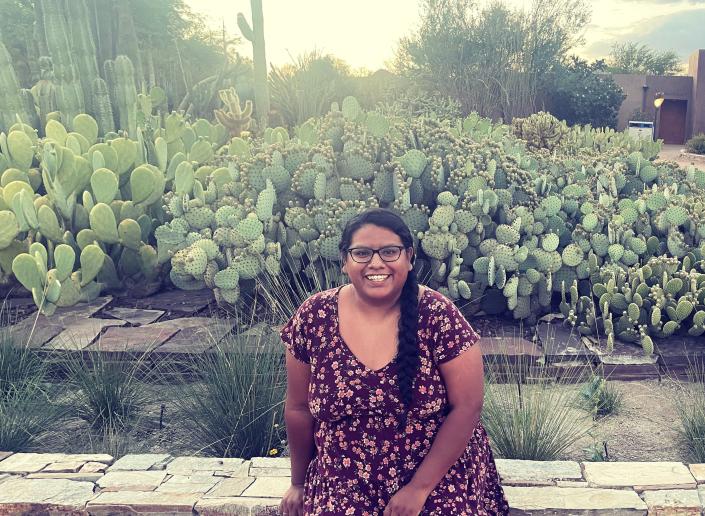sympathy is not one of my greatest traits ...........i do blow jobs before i do sympathy .........and i do not do blow jobs .........so go elsewhere.........i have pity only for a very....... very and i mean very few ..........children with cancer .........and animals .......everything else is subject ,,,,,,,,however......the DACA programme ...i know its some dreamer bollocks .......we are all fucking something or other ........its a risk like everything else ........so c'est la vie .......as they say ......thinking the govt give a fuck is like putting your head in a lions mouth ..........you are fucking stupid ..........
I don’t know if I will be deported’: Young immigrants prepare for DACA to Javier Arce, Rafael Carranza, Bill Keveney and Daniel Gonzalez, USA TODAY
Like a roller coaster, with ups and downs, excitement and fears, not knowing where it will end. This is how Yesenia Ramales sees the Deferred Action for Childhood Arrivals policy.
"It's been 10 years of a lot of frustration, not only for me but for the whole community. It's disappointing to see that we're in a position where something could be done and nothing is being done," said Ramales, who lives in Phoenix.
The DACA program started taking applications 10 years ago this week and remains as divisive as when it was first launched in 2012. A steady stream of legal challenges threatens its existence, leaving the more than 600,000 DACA recipients in the United States in a constant state of uncertainty, frustration and fear.
A panel of federal judges in New Orleans is expected to rule in the coming weeks whether to do away with the program, potentially erasing a decade’s worth of protections for undocumented young people.
"I haven't bought a house thinking that I could become unemployed if the program ends at any moment. I haven't had children because I don't know if I will be deported someday," Ramales said. "You can't plan a life living every two years, and every two years, and every two years."
Ramales, 29, was born in Puebla, Mexico, and was brought to the United States by her parents in 1994, when she was two years old. She is a paralegal at The Florence Project in Phoenix, a nonprofit that provides free legal and social services to adults and unaccompanied children in immigration custody.
"When people talk about DACA, people don't grasp that we are no longer children, we are no longer young people. We are already adults,” she said. “I will be 30 years old in a month, and I am still in this frustrating situation where uncertainty is constant."
Does DACA help undocumented immigrants?
Recipients said they appreciate what DACA offers: protection from deportation; a Social Security number and work permit; the opportunity to get employer-based health insurance; a driver’s license; and in some instances, the ability to leave the country temporarily and return.



No comments:
Post a Comment